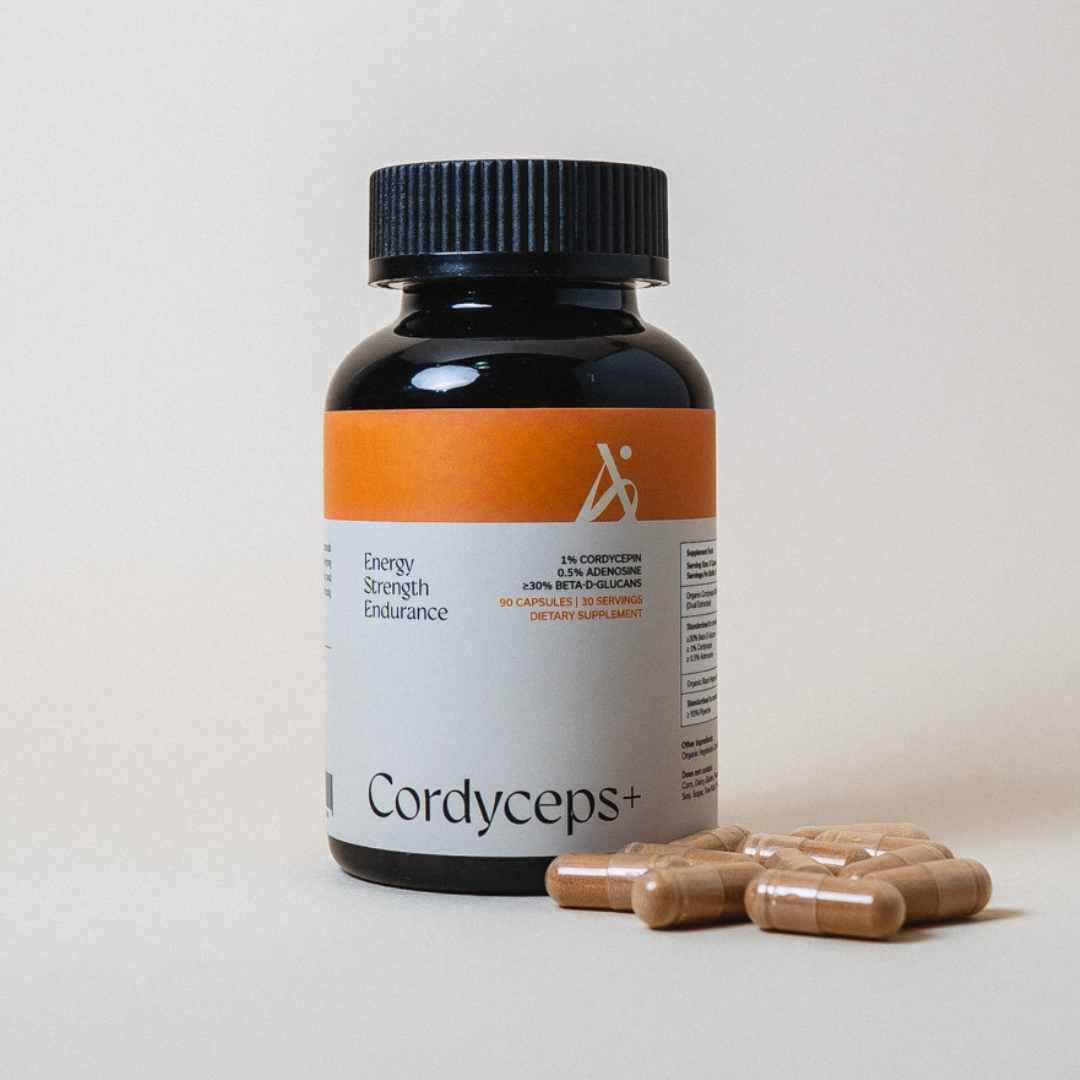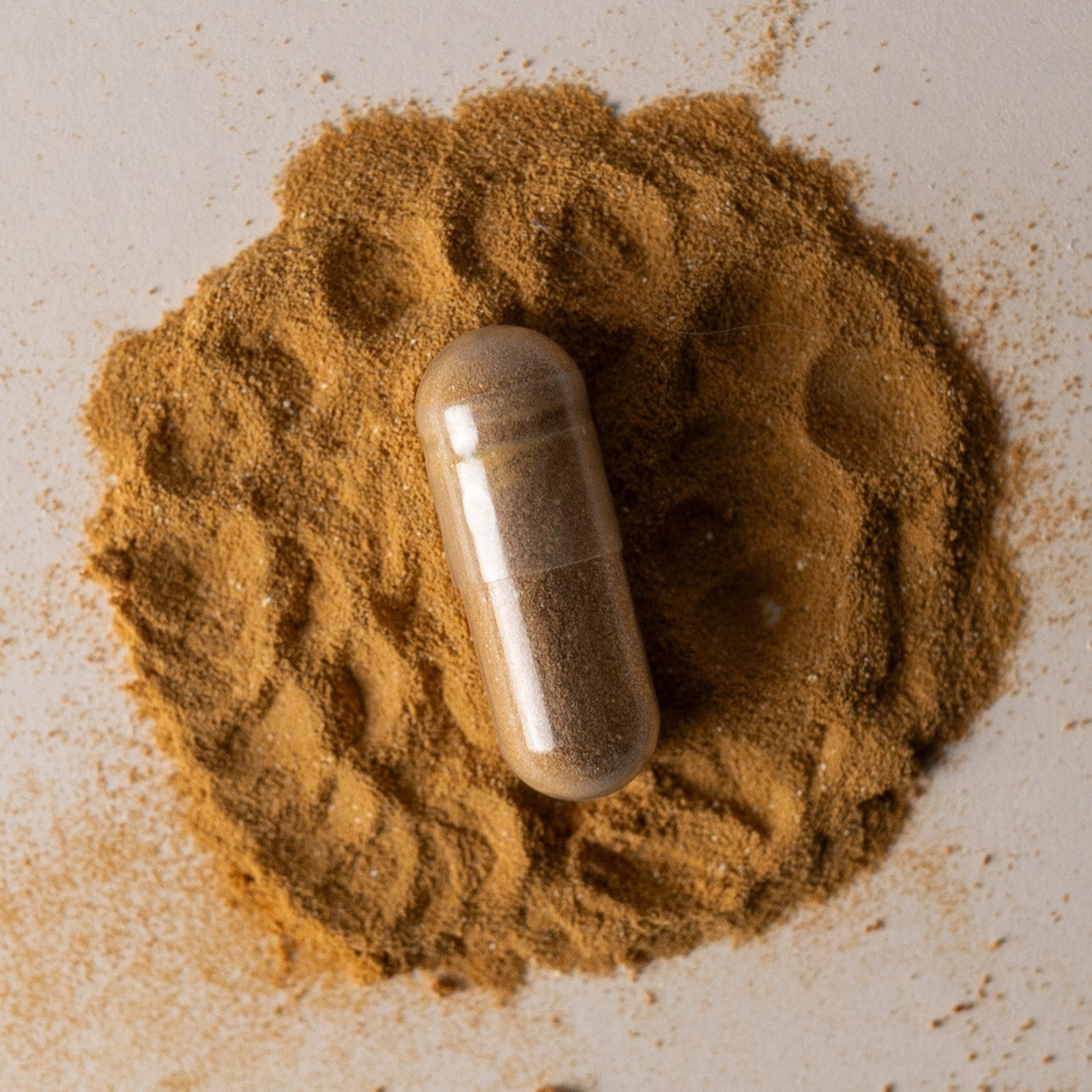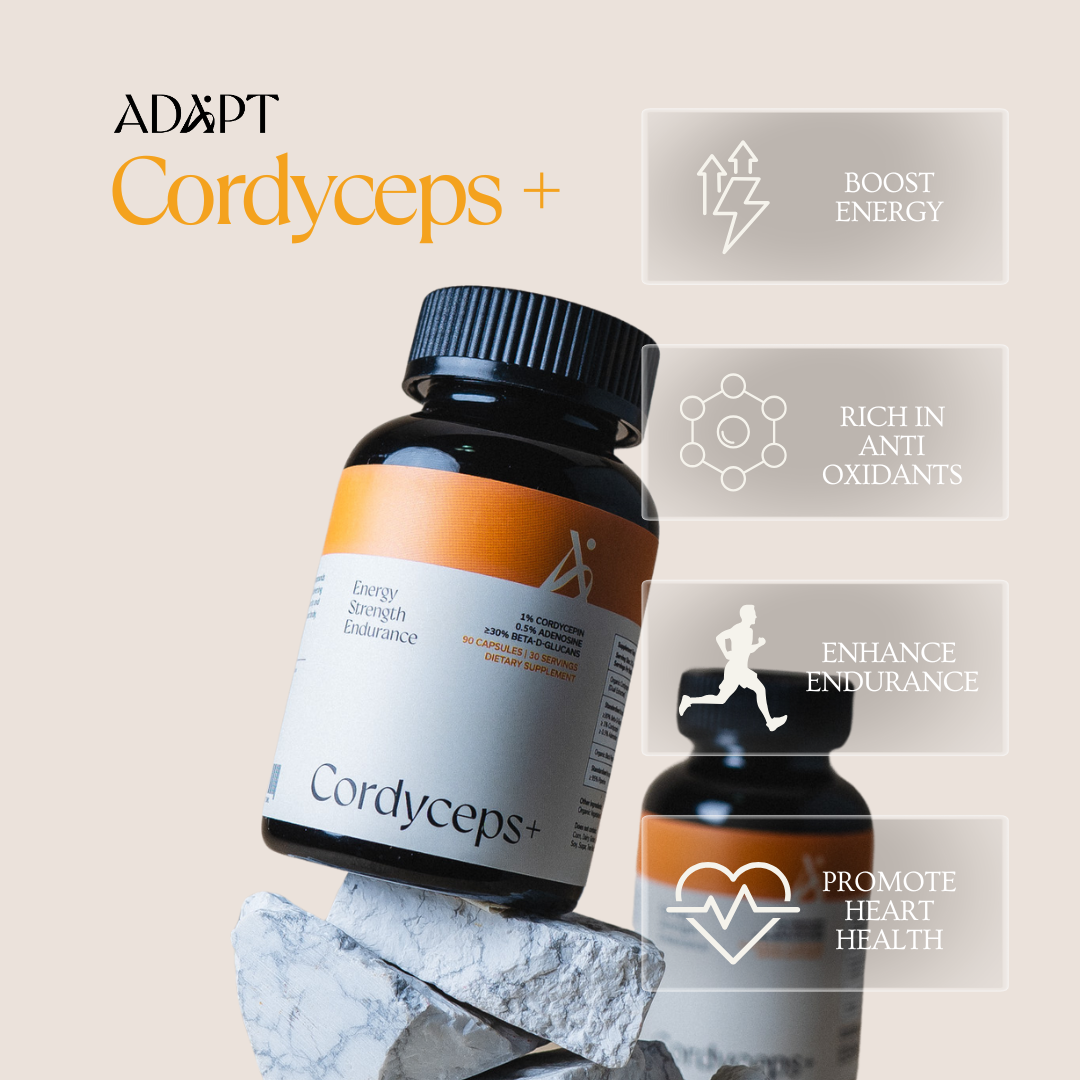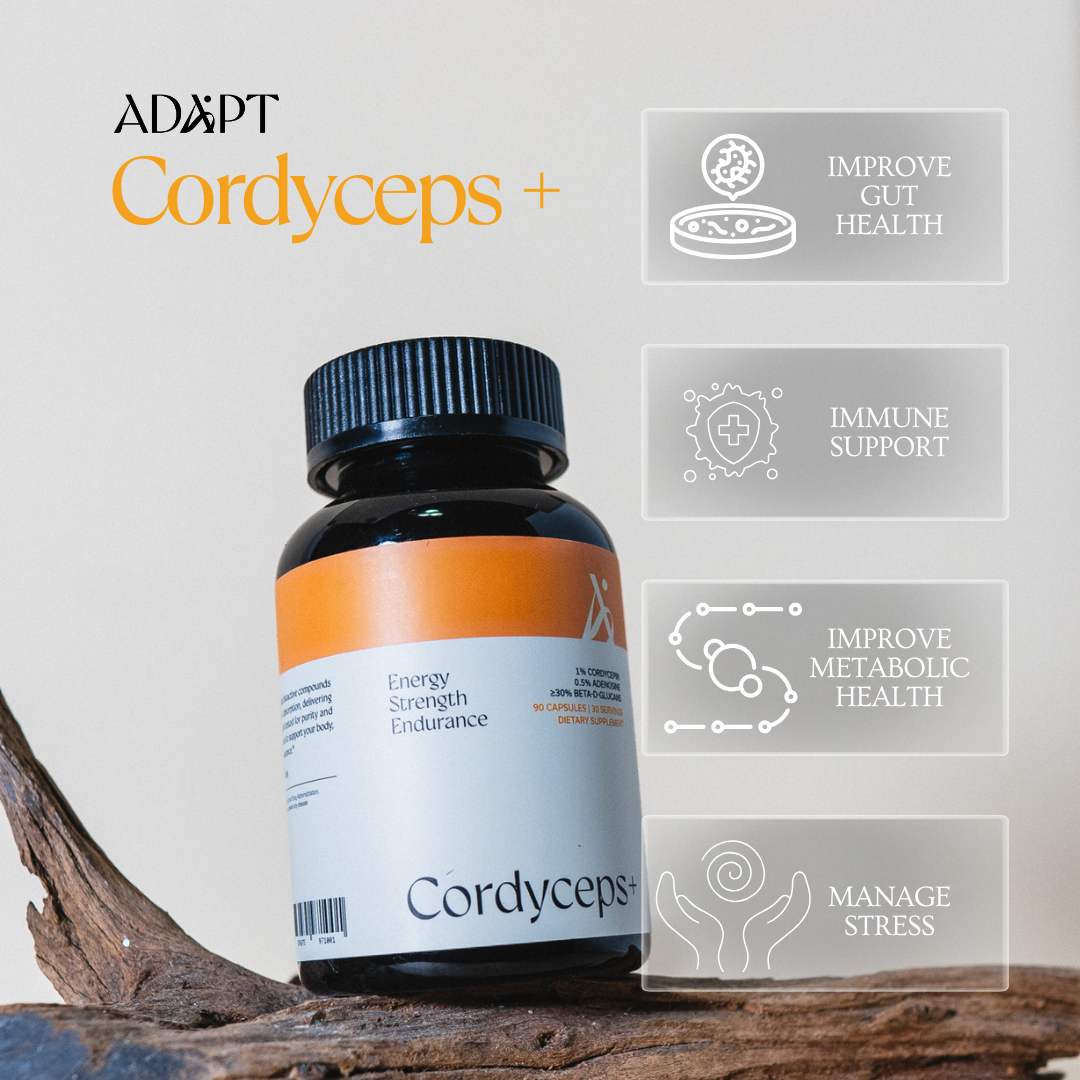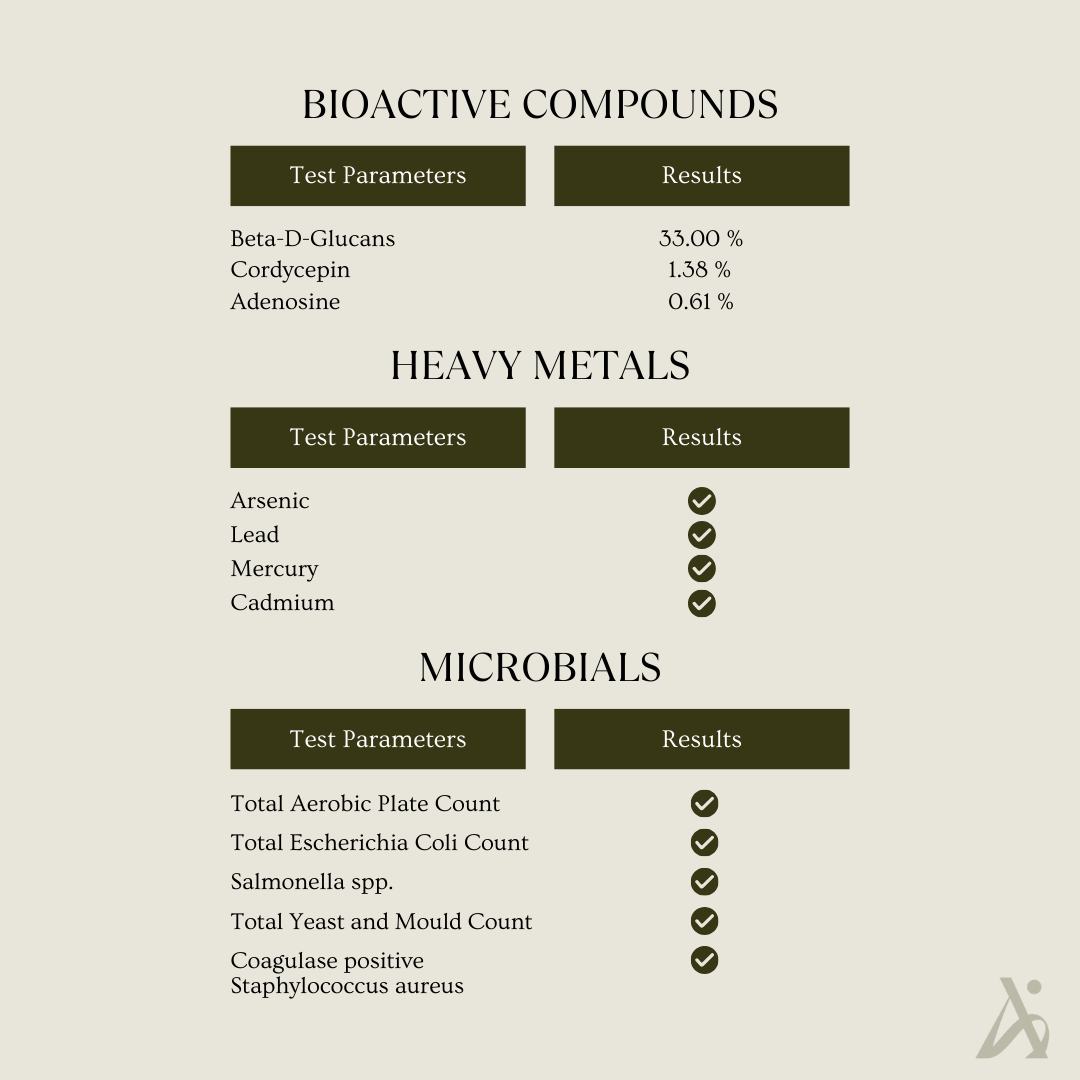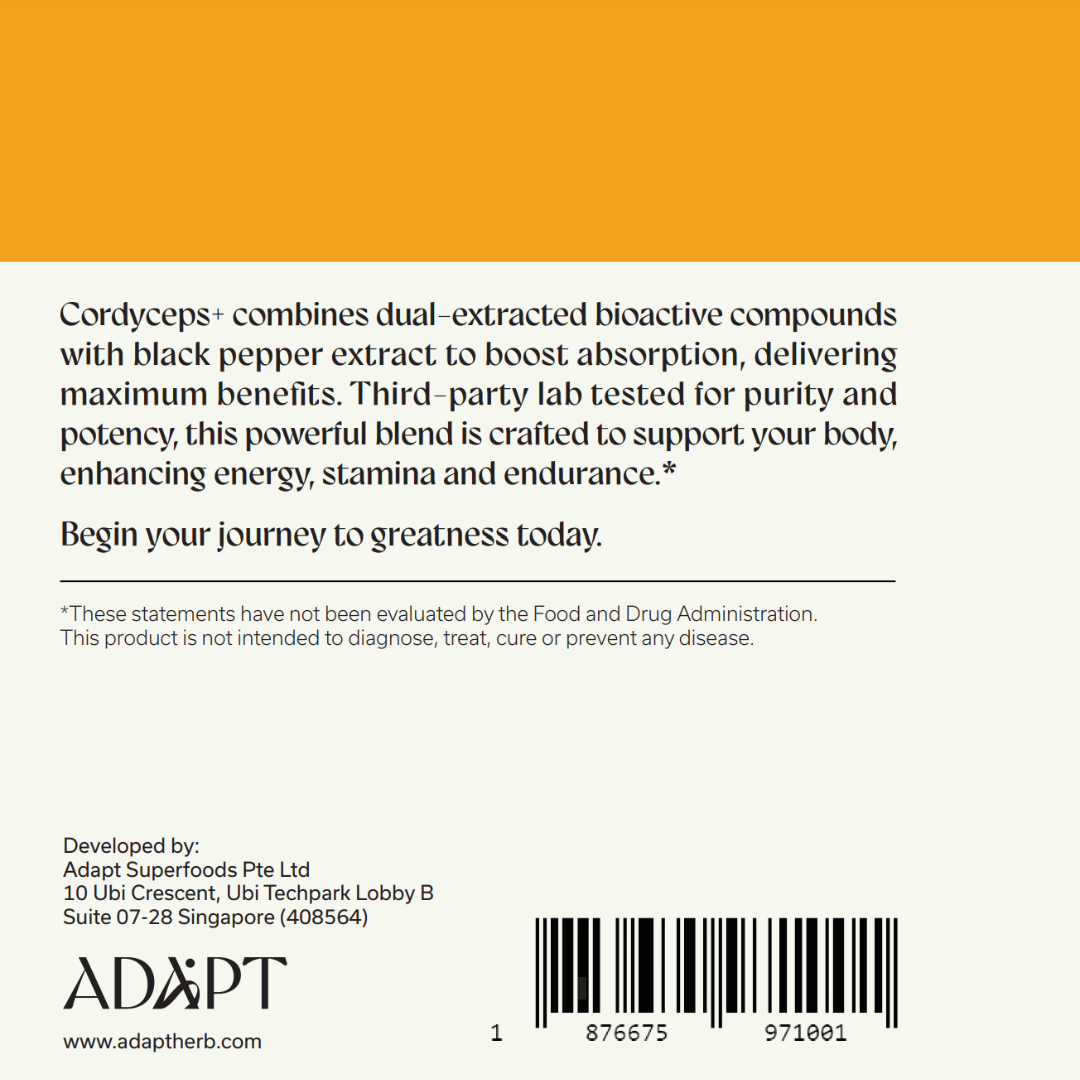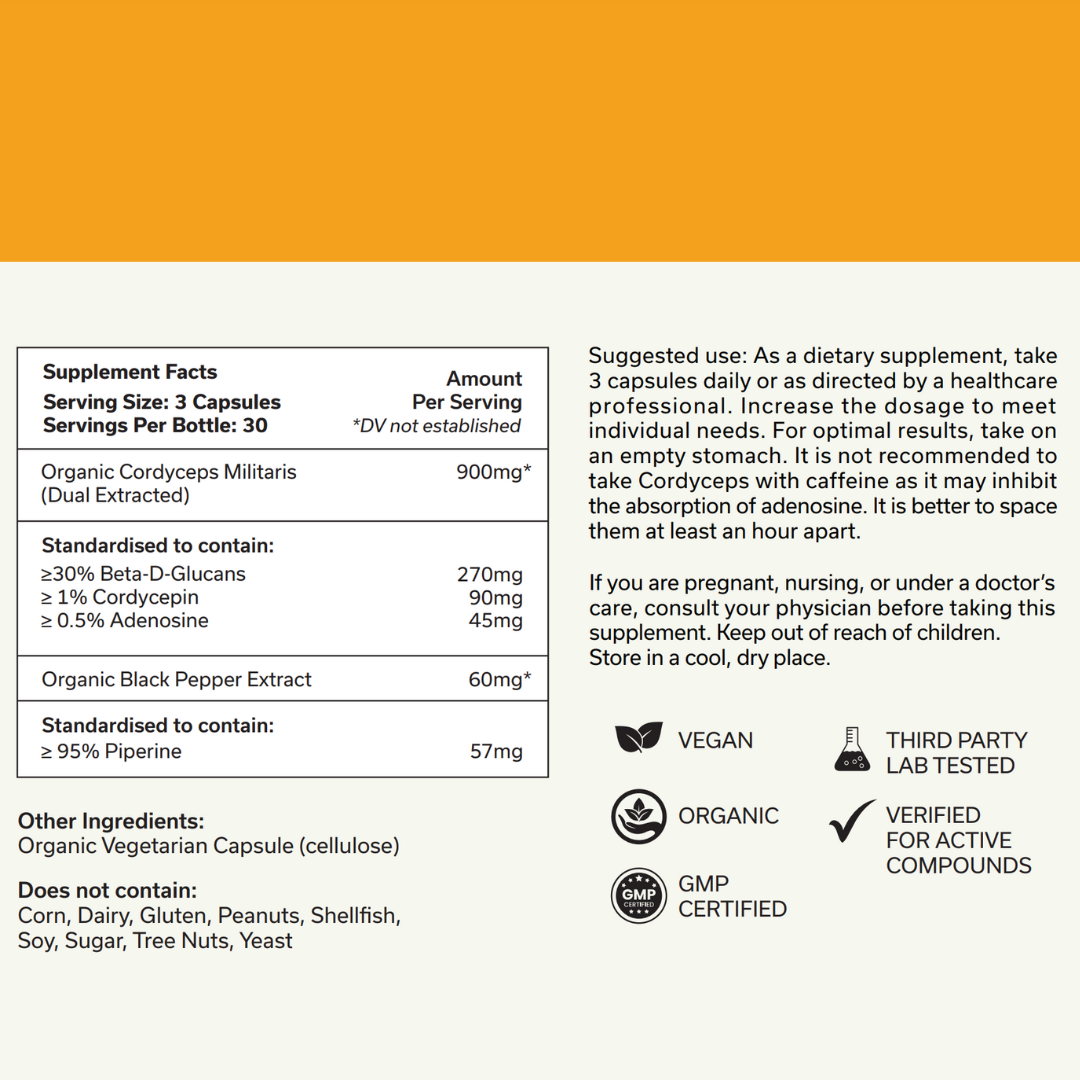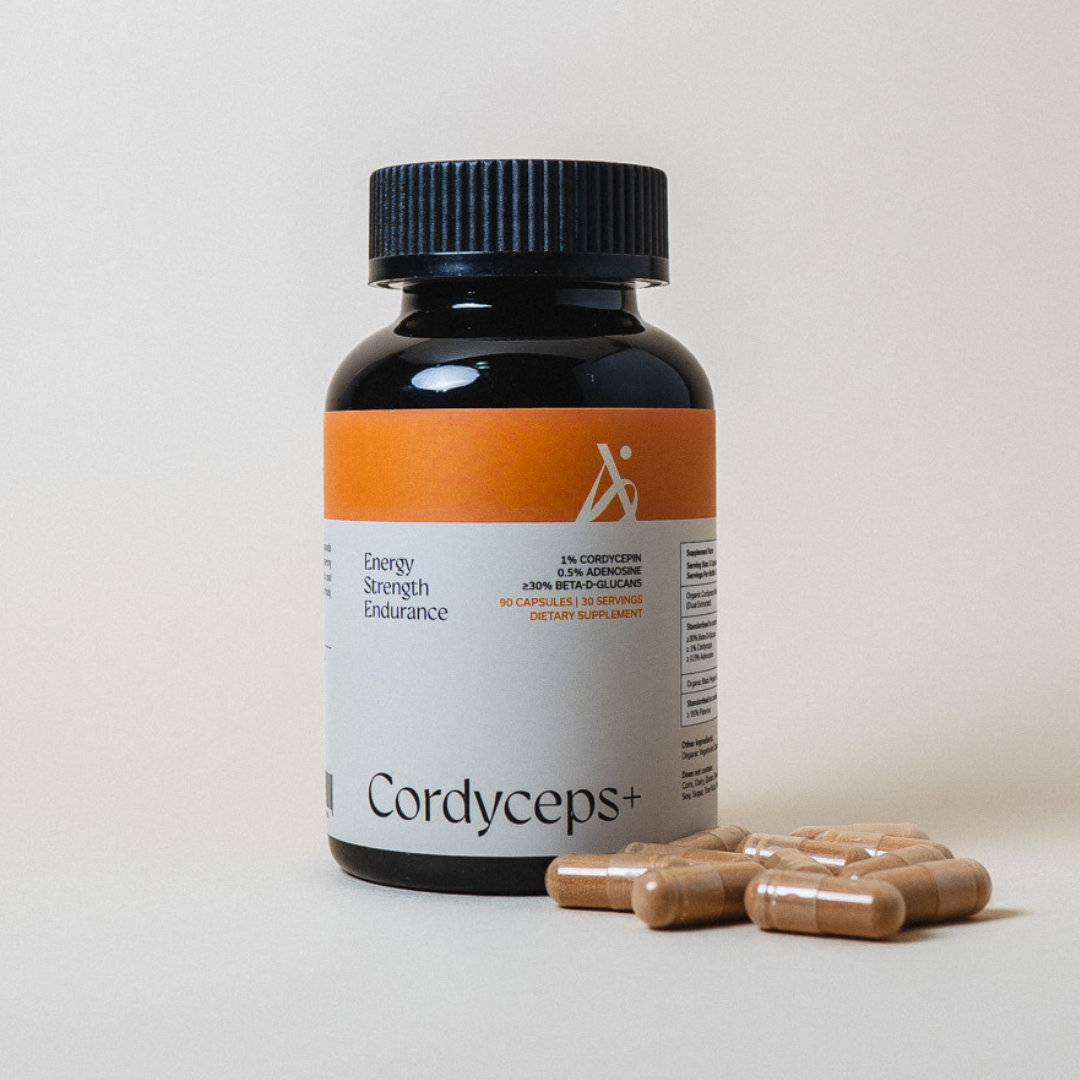Embrace the Wonders of Traditional Chinese Medicine with Cordyceps
What is Cordyceps?
Cordyceps is a type of medicinal mushroom with a long history of use in traditional Chinese and Tibetan medicine, valued for its potential to enhance energy, endurance, and overall vitality. There are over 400 species of Cordyceps, but the two most commonly used are Cordyceps Sinensis and Cordyceps Militaris.
Wild Cordyceps Sinensis grows primarily on caterpillars in the high-altitude regions of the Himalayas and Tibetan Plateau. Due to its rarity, wild Cordyceps is incredibly expensive, sometimes reaching thousands of dollars per kilogram, with some sources quoting up to $20,000 per kilogram due to high demand and limited supply.
Cordyceps Militaris is widely cultivated on plant-based substrates, making it more affordable and accessible. Cordyceps Militaris (the cultivated form) has a bright orange fruiting body, whereas Cordyceps Sinensis in its wild form is dark brown and grows on insects.

Cordyceps contains several beneficial bioactive compounds, which contribute to its reputation as a medicinal mushroom. Cordyceps are known for three key beneficial compounds: Cordycepin, Adenosine and Beta-D-Glucans. Together, these compounds contribute to Cordyceps' reputation for boosting energy, supporting immunity, and enhancing overall wellness.
History of Cordyceps
The history of Cordyceps as a medicinal fungus traces back thousands of years, primarily within traditional Chinese and Tibetan medicine. The use of Cordyceps Sinensis, also known as "Dong Chong Xia Cao" in Chinese, was first documented in Tibetan texts around the 15th century. It was considered a "miracle fungus" for its ability to boost stamina, improve respiratory health and physical endurance. Historically, it was so prized that only the Chinese emperor and nobility had access to wild-harvested Cordyceps, which was sourced from high-altitude regions in the Himalayas and Tibetan Plateau.

Traditional practitioners valued Cordyceps for its adaptogenic and immune-boosting properties. It was believed to replenish kidney function, enhance vitality, and treat fatigue. Tibetan herders first noticed its effects when their livestock showed increased vitality and strength after grazing in areas where Cordyceps grew naturally.
In modern times, Cordyceps has gained global popularity, with extensive research exploring its active compounds, such as cordycepin, adenosine, and beta-d -glucans. These studies continue to affirm some of its traditional uses and reveal additional potential benefits, like improving energy production and supporting immune health. This ongoing research has led to the cultivation of Cordyceps Militaris, which can be grown more easily and sustainably than Cordyceps Sinensis, making it more widely available.
Cordyceps in TCM
In Traditional Chinese Medicine (TCM), Cordyceps Sinensis became known as "Dong Chong Xia Cao", meaning "winter worm, summer grass." This name reflects its natural life cycle: Cordyceps infects a caterpillar host, eventually consuming it and sprouting as a fungus from the body, which then reemerges in the summer. Ancient TCM practitioners prized Cordyceps for its ability to support kidney health, lung function, and vitality. It was often prescribed for respiratory ailments and fatigue with the belief that it could strengthen both the body and spirit.
By the Qing Dynasty (1644–1912), Cordyceps had reached peak popularity in China, with the imperial family and upper classes using it regularly as a tonic for longevity and vitality. It was considered a royal treatment, and common people rarely had access to it due to its rarity and the difficulty of harvesting it in high-altitude regions.
Benefits of Cordyceps in TCM
In Traditional Chinese Medicine (TCM), Cordyceps is revered for a broad spectrum of health benefits due to its ability to harmonize essential bodily functions. Beyond the primary uses of boosting vitality, respiratory health, and kidney function, Cordyceps provides several other therapeutic effects that align with TCM principles of balance and holistic health.


Nourishment of the Kidney and Lung
- Warming and Invigorating Properties : In TCM, Cordyceps is classified as a "tonic" herb with warming and invigorating properties. It’s associated with nourishing the Kidney and Lung meridians, which are linked to vitality and respiratory health, respectively. These meridians are considered essential for life energy (Qi) and longevity. Practitioners believe that Cordyceps helps to “tonify” or strengthen these organs, aiding in respiratory function, managing stress, and enhancing endurance.
- Support for Adrenal Health: Cordyceps is also used to support adrenal health, which in TCM corresponds with balancing Yin and Yang energies and managing stress. By reinforcing Kidney Qi, Cordyceps can help the body adapt to stress and prevent burnout
Strengthening Qi and Yang
- Enhance Life Force Energy: Cordyceps is valued for its Yang-tonifying effects, which support Yang energy—the active, warming, and motivating force within the body. In TCM, weak Yang is often associated with fatigue, cold intolerance, and weakened immunity. Cordyceps is believed to replenish Yang, thereby helping to combat these symptoms and restore vitality. As a Qi tonic, it is used to enhance life force energy, which is especially valuable for those recovering from illness or facing chronic fatigue.
- Blood Circulation and Cardiovascular Health: Cordyceps is sometimes used to invigorate blood circulation and support heart health. TCM suggests that Cordyceps can help improve blood flow, which is essential for energy distribution and detoxification.
Longevity and Mental Clarity
- Anti-Aging and Longevity: TCM views Cordyceps as an herb that can slow aging and promote longevity by nourishing Jing, the body’s “essence” or life force. Jing is believed to govern vitality, and its depletion is linked to aging. Cordyceps helps replenish Jing, thereby supporting youthful vigor and resilience.

- Enhancing Mental Clarity and Calm: Cordyceps is thought to calm the mind and reduce stress, promoting a balanced mental state. In TCM, a strong connection exists between the heart and mind (Shen), and herbs that fortify Shen are believed to promote mental clarity and reduce anxiety. By harmonizing Qi and calming the Shen, Cordyceps is used to improve focus and reduce mental fatigue.
Liver Health and Detoxification
- Support Liver Health: Cordyceps is sometimes used in TCM to support liver health, as the liver plays a key role in maintaining a smooth flow of Qi and blood. TCM practitioners believe that a well-functioning liver is essential for emotional health, balanced energy, and effective detoxification, making Cordyceps an herb that helps maintain liver health indirectly by strengthening the body's natural resilience.
By addressing these diverse needs, Cordyceps remains one of the most versatile and revered herbs in TCM, promoting a balanced state of well-being that harmonizes physical, mental, and emotional health. Its unique profile of bioactive compounds, alongside centuries of traditional use, reinforces its status as a deeply beneficial and multi-purpose herb.
Benefits of Cordyceps in Modern Science
The traditional claims of Cordyceps have piqued modern scientific interest, leading to research on its bioactive compounds such as Cordycepin, Adenosine and fungal Beta-D-Glucans, which play a central role in its therapeutic effects. These compounds contribute significantly to the mushroom’s wide range of health benefits.


Cordycepin (3'-deoxyadenosine)
- Improved Oxygen Utilization and Athletic Performance: Studies suggest that cordycepin can enhance oxygen utilization, which is particularly beneficial for athletes or individuals with chronic fatigue. It helps to increase the production of ATP (adenosine triphosphate), the body's primary energy source, which supports sustained physical endurance and reduces fatigue. This benefit is tied to its role in mitochondrial function and energy metabolism (Zhou et al., 2016).
- Regulates Cell Growth and Division: Cordycepin has been shown to affect the mechanisms that control cell division. By disrupting the cell cycle, it can slow down the replication of cells that are not functioning properly. This may help maintain a balance in the body by preventing the overgrowth of certain cell types (Sharma et al., 2020; Xu et al., 2015).
- Induces Apoptosis (Cell Death): Cordycepin activates pathways that trigger apoptosis, or programmed cell death, in damaged or malfunctioning cells. This process helps eliminate unwanted or dysfunctional cells, ensuring the body's overall health by preventing the buildup of potentially harmful cells (Bian et al., 2018).
- Inhibits Abnormal Cell Migration: Cordycepin has been shown to prevent the movement and spread of cells beyond their normal boundaries. This is important for maintaining the integrity and function of tissues and organs, as abnormal cell migration can interfere with tissue repair and regeneration (Zhou et al., 2018).
- Supports Cellular Repair and Regeneration: The compound also enhances the body’s ability to repair damaged cells and tissues by stimulating regenerative processes. This can contribute to overall vitality and help maintain normal cell function as the body ages (Zhou et al., 2016).
- Reduces Inflammation at the Cellular Level: Cordycepin has demonstrated anti-inflammatory properties by modulating cytokine production, which plays a key role in the inflammatory response. Chronic inflammation can lead to cellular damage, so by reducing inflammation, cordycepin helps preserve the health of cells and tissues (Yang et al., 2017).

Adenosine
- Enhanced Energy Production: Adenosine is integral to ATP (adenosine triphosphate) synthesis, which is the primary energy currency of the body. In Cordyceps, adenosine contributes to improving energy levels by enhancing ATP production, leading to better stamina and reduced fatigue. This is particularly beneficial for athletes or individuals seeking to improve physical performance, as Cordyceps has been shown to support endurance and reduce physical stress (Zhou et al., 2016).
- Cardiovascular Support: Adenosine in Cordyceps promotes cardiovascular health by acting as a vasodilator, helping to relax and widen blood vessels. This improves blood circulation and lowers blood pressure, supporting heart health. Additionally, adenosine helps regulate heart rate and can be beneficial in maintaining a balanced cardiovascular system, particularly in individuals experiencing fatigue or stress (Ding et al. ,2014).
- Neuroprotective Effects: Adenosine in Cordyceps also plays a role in neuroprotection. It helps regulate neurotransmitter release in the brain, promoting relaxation and reducing excitotoxicity (damage caused by over-stimulation of nerve cells). This may contribute to improved cognitive function, memory, and a reduction in the risk of conditions associated with aging. Adenosine's effect on the central nervous system is linked to its role in sleep regulation as well (Yang et al., 2018)
- Immune System Modulation: Adenosine in Cordyceps modulates the immune system, helping to boost the body's defense mechanisms. By regulating immune responses, it enhances the body’s ability to resist infections and balance inflammation. Adenosine in Cordyceps has been shown to increase the activity of macrophages and T-cells, which are key players in immune defense (Xu et al., 2015).
- Anti-Inflammatory Effects: Adenosine also exhibits anti-inflammatory properties in Cordyceps, helping to reduce chronic inflammation. It modulates the production of inflammatory cytokines, reducing inflammation at the cellular promoting overall health and recovery (Bian et al., 2018).
Fungal Beta-D-Glucans
Fungal beta-D-glucans are polysaccharides found in the cell walls of mushrooms. They are known for their numerous health benefits, particularly regarding immune support and overall wellness. Here are some key benefits of fungal beta-D-glucans.

- Immune System Support: Beta-D-Glucans can enhance the activity of immune cells like macrophages, neutrophils, and natural killer cells. This leads to a stronger defense against infections and helps the body respond more effectively to pathogens (Li et al., 2009; Zhang et al., 2016).
- Energy and Vitality Boost: Research has shown that Beta-D-Glucans may support mitochondrial function and improve energy production at the cellular level. This is particularly beneficial for endurance and reducing fatigue during physical activity (Zhou et al., 2016).
- Anti-Inflammatory Properties: Beta-D-Glucans in Cordyceps have been shown to reduce inflammation by influencing cytokine production. This can help manage conditions related to chronic inflammation, promoting a balanced inflammatory response (Yang et al., 2017).
- Gut Health and Digestive Support: Beta-D-glucans are prebiotic, meaning they can stimulate the growth of beneficial gut bacteria. A healthy gut microbiome is crucial for digestion, nutrient absorption, and overall gastrointestinal health. By supporting gut flora, beta-D-glucans also promote a balanced inflammatory response in the gut (Zhao et al., 2019; Liu et al., 2020).
- Cholesterol and Blood Sugar Regulation: Research suggests that beta-D-glucans may help lower LDL cholesterol and regulate blood sugar levels. This is achieved by affecting cholesterol metabolism and glucose absorption in the intestines, which can contribute to heart health and improved blood sugar control (Li et al., 2019; Vuksan et al., 2018).
- Antioxidant Effects: Beta-D-glucans also possess antioxidant properties, helping to reduce oxidative stress in the body. This can protect cells from damage caused by free radicals, which is beneficial for overall health and aging (Tian et al., 2018; Hossen et al., 2019).
Making Cordyceps a Part of Your Daily Routine
Our Cordyceps + is available in capsule form making it easy to take with water. This is one of the simplest ways to ensure you’re getting a consistent dose. To integrate Cordyceps effectively into your day, consider the following tips:

- Morning Routine: For capsules, a common dosage is between 500 mg to 1,000 mg (1 gram) per serving, taken once or twice daily. It is best to take Cordyceps first thing in the morning on an empty stomach to maximise the absorption of beneficial compounds. It is not recommended to take Cordyceps with caffeine as preliminary research suggests that caffeine inhibits the absorption of adenosine. It is better to space them at least 30 minutes apart.
- Mix with Smoothies: If you prefer powders, our Cordyceps + is 100% water soluble and can be added to smoothies by separating the capsules. This not only boosts energy but also supports overall immunity. Consuming it in the morning can help increase alertness and reduce fatigue throughout the day.
- Pre-Workout Boost: Take Cordyceps + before workouts. It may enhance endurance and reduce fatigue during physical activity. This is particularly beneficial for athletes or individuals seeking to improve physical performance.
Our Cordyceps + capsules have the added benefit of Black Pepper Extract with high concentrations of Piperine which is known to be a bioavailability enhancer. By taking Cordyceps + capsules with black pepper, you can experience its synergistic effects and significantly improve the absorption of the beneficial compounds, ensuring that your body reaps its full rewards.
Consistency is key: For optimal benefits, regular consumption over time supports immune function, increases stamina, and aids in energy production, thanks to compounds like Cordycepin and Adenosine. Start small, be consistent, and enjoy the journey to enhanced wellness!
As with any supplement or dietary change, it’s important to consult with a healthcare professional, especially for individuals with underlying health conditions or those taking medications.
Start Your Wellness Journey Today
Are you prepared to embrace holistic wellness? Our Cordyceps + serves as a connection between ancient healing and modern wellness. Join countless individuals who have experienced its transformative effects. Combine it with Pure Himalayan Shilajit Resin to amplify its effectiveness and accelerate your journey to wellness!

Boost your physical and mental well-being with a product that embodies authenticity and the wonders of nature. Explore its benefits today and enrich your life with every dose! With its exceptional quality, rigorous safety standards, and unmatched nutrient content, our Cordyceps + is the ideal companion for your journey toward optimal health and vitality.
Third-Party Lab Tested
Every batch of our Cordyceps + is tested rigorously for active ingredients, heavy metals and microbials at accredited laboratories in Singapore. We don’t just claim it, we prove it. All our lab reports are available online for you to see. We believe that transparency and reliability is vital in providing safe and effective products to you.
References
Bian, C., et al. (2018). The role of cordycepin in cell regeneration and apoptosis. Molecular Neurobiology.
Bian, C., et al. (2018). Adenosine's role in reducing inflammation in Cordyceps. Cellular and Molecular Life Sciences.
Calvo, A., et al. (2019). Beta-glucans in immune modulation. Frontiers in Immunology.
Chen, X., et al. (2019). Anti-inflammatory effects of beta-glucans. Journal of Immunology.
Ding, J., et al. (2014). Adenosine and cardiovascular health in Cordyceps. Pharmacology & Therapeutics.
Hossen, M., et al. (2019). Beta-glucans and their antioxidant properties. Antioxidants.
Li, H., et al. (2019). The role of beta-glucans in cholesterol and blood sugar regulation. Nutritional Research Reviews.
Li, J., et al. (2009). The effects of beta-glucan on the immune system. International Journal of Medicinal Mushrooms.
Liu, T., et al. (2014). The prebiotic effects of beta-glucan on gut microbiota. Food Research International.
Liu, Z., et al. (2020). Prebiotic effects of beta-glucans on gut microbiota. Food Science and Human Wellness.
Rieder, M., et al. (2017). Immune modulation by beta-glucans in fungal cell walls. Pharmacology & Therapeutics.
Sharma, S., et al. (2020). Cordycepin (3'-deoxyadenosine) and its effects on cell growth regulation. Molecular Cancer Therapeutics.
Sun, X., et al. (2018). Beta-glucans enhance physical performance. Journal of Applied Physiology.
Tian, W., et al. (2018). Antioxidant activities of beta-glucans. Food Chemistry.
Vuksan, V., et al. (2018). Beta-glucans in cholesterol regulation. Journal of Clinical Lipidology.
Xu, X., et al. (2015). Cordycepin and its role in cell growth modulation. Virology Journal.
Xu, X., et al. (2015). Adenosine and immunomodulation in Cordyceps. Journal of Immunology.
Yang, L., et al. (2017). Anti-inflammatory effects of cordycepin in cellular models. Journal of Ethnopharmacology.
Yang, L., et al. (2018). Adenosine's neuroprotective effects in Cordyceps. Frontiers in Neuroscience.
Zhang, M., et al. (2016). Beta-glucan as an immune modulator in Cordyceps. Phytotherapy Research.
Zhou, Z., et al. (2016). Cordycepin enhances exercise performance by increasing ATP production. Journal of Applied Physiology.
Zhou, Z., et al. (2016). Cordyceps and its role in ATP production for enhanced physical performance. Journal of Applied Physiology.
Zhao, Z., et al. (2019). Gut health benefits of beta-glucans. Food Research International.
Adapt Herb
Cordyceps+
Share
